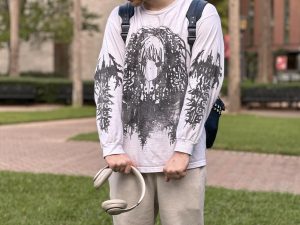Opinion: We need to talk about menstrual cycles
September 19, 2016
Rula Thabata
Political science sophomore
Let’s talk about menstrual cycles.
No, not the biology of the monthly occurrence experienced by most women, but the cost from month to month and how a menstrual cycle is not a choice. When we talk about menstrual cycles we have to talk about the pink tax.
The pink tax describes how personal items, items which are the same for men and women, such as razors, deodorant and shampoo are arbitrarily priced higher when marketed for women. Somehow women have to pay more, but that’s because we’re special, right? The pink tax is problematic enough, but it becomes a bigger problem when it affects feminine hygiene products. Women can choose not to buy pink razors or forgo pricey shampoo, but women have no choice in purchasing tampons and pads. They are absolutely essential.
On average, the Huffington Post reported, a woman will spend about $18,700 dollars throughout her lifetime on female hygiene products for a menstrual cycle that she cannot control or stop.
Bleeding on a monthly basis is not a conscious choice women make from month to month, and neither are the cramps, the bloating or the back pain. While it is true that these symptoms are different for every woman, most women experience a menstrual cycle. The high cost of feminine hygiene products is not logical but rather another example of financial gender inequality and infringement on women’s dignity. Tampons and pads should be like toilet paper, readily accessible in public bathrooms.
Women should not have to experience blood seeping through their underwear and pants if pads or tampons are unavailable or if they cannot afford to pay for them. The lack of and high price tag on tampons and pads creates new problems for women when they are in school, work and in public. It should not be a luxury to find a means of absorbing your blood. Easy access to feminine hygiene products is more than a health issue or a cost issue; it is an issue of basic human dignity. Anybody with a vagina, and those without one for that matter, should agree that basic products such as tampons and pads should not be unfairly monetized and moreover, that such products should be free and readily accessible.








Mirifica • Sep 20, 2016 at 2:40 pm
Painful menstruation is one of the leading causes for women to deviate from usual activity, mirifica Pueraria it is commonly used to regulate the menstrual cycle and relieve menstrual cramps. http://www.mirificapueraria.com/mirifica-pueraria-550mg-100-vegetarian-capsules-by-ancient-herbs.html